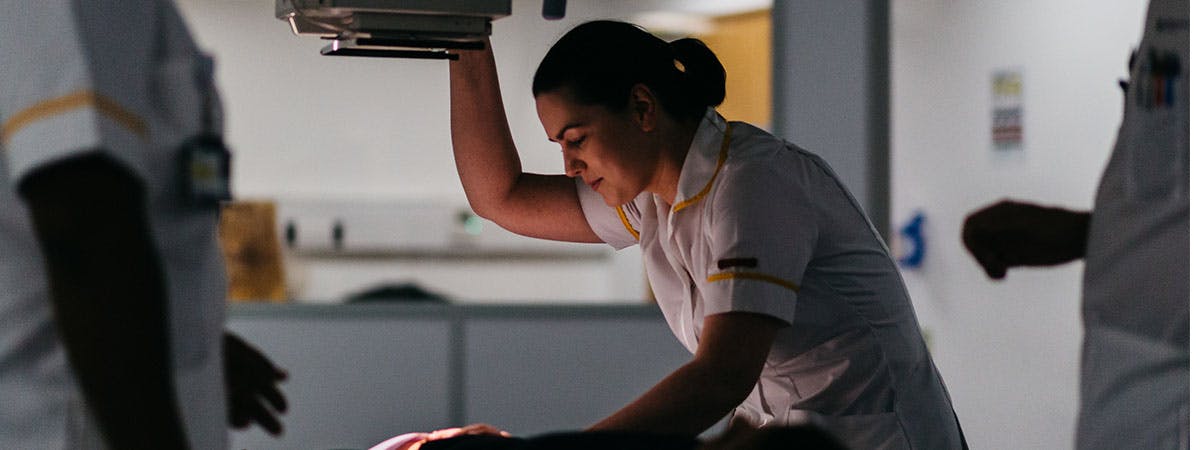You might have heard of a radiographer or radiotherapist, but do you know the difference? We take a deeper look into each role to find out more. If you’re thinking of applying to one of our Radiography or Radiotherapy courses, this is something you will need to know.

In short, diagnostic radiographers use complex equipment to produce images such as x-rays or scans. Therapeutic radiographers use radiation to treat cancer and tissue defects. To work in either of this fields, you will need an approved degree. Below, we look closer into the differences between the two roles.
Diagnostic Radiography:
In NHS hospitals, diagnostic radiographers will work as part of a healthcare team to provide diagnostic imaging services. Larger hospitals are more likely to have a wider and more prominent radiography team. In these hospitals, radiography may be carried out in:
- A main radiography department
- Wards and operating theatres, using mobile units
- A&E units to diagnose fractures or other conditions
Generally, there’s a lot of variation in the day to day workload of diagnostic radiographers. They will usually only meet their patients once and depending on the area of imaging, diagnostic radiographers may deal with anything between three to forty patients per day. The nature of the work usually means that diagnostic radiographers will work shifts to cover a 24 hour period in a full-time position.
Opportunities for diagnostic radiographers:
Most radiographers make their career within the NHS and can gain promotion through experience or higher level qualifications. There is a well-known promotion structure within the NHS and a practitioner can quickly become an advanced practitioner, which involves managing a team in a specialist field. Diagnostic radiographers may choose to specialise in a particular technique such as ultrasound, MRI, CT or fluoroscopy.

Therapeutic Radiographers:
Therapeutic Radiography departments are only located in large hospitals. Therapeutic radiographers (also known as radiotherapy radiographers) operate complex, highly technical equipment. They both plan and deliver treatment for patients. It is vital that exactly the right amount of radiation is accurately targeted at the site of the disease. There are two stages of this planning process:
- An x-ray or scan is taken to determine the specific location of the area affected and the exact position in which the patient must be treated.
- A treatment schedule is then prepared, calculating the correct radiation dose that needs to be used and precisely where the beam should enter and exit the body. This is done in consultation with medical physicists and doctors.
Unlike diagnostic radiographers, therapeutic radiographers can get to know individual patients quite well, as often regular treatment is required. The radiographer will explain the treatment and support the patient throughout. They’ll need to have a good bedside manner when treating patients as most will have already undergone a vast amount of medical investigation and may be frightened by their condition and the prospect of treatment, with some having little hope of recovery.
These patients can be of all ages and work with children can be particularly emotional demanding. Despite this, it can be a very rewarding role and radiographers can often encourage patients through their treatment and the end result will be many patients restored to full health.
Opportunities for therapeutic radiographers:
Therapeutic radiographers can specialise in particular aspects of work, for example, working in treatment planning or palliative care, equally radiographers can also go off into the teaching and research sectors too. As with diagnostic radiographers, there is a defined career structure, so practitioners can progress to advanced practitioner and consultant level by gaining additional skills and qualifications.